Fingolimod Fingomod Capsules
$168.00 – $487.00Price range: $168.00 through $487.00
| Pack Size | Price | Price / Unit | Quantity | |
|---|---|---|---|---|
| 28 Tablets | $168.00 | $6.00/ unit | ||
| 56 Tablets | $330.00 | $5.89/ unit | ||
| 84 Tablets | $487.00 | $5.80/ unit |
Looking for bulk / B2B pricing? | Send Inquiry |

| SKU | 11552 |
| Manufacturer | Sun Pharmaceutical Industries Ltd |
| Categories | Health |
| Delivery Time | 10 - 14 Working Days |
| Strength | 0.5mg |
Introduction to Fingolimod Capsules
Fingolimod capsules are a medication used primarily for the treatment of relapsing forms of Multiple Sclerosis (MS), a chronic autoimmune disease that affects the central nervous system (CNS). Sold under the brand name Gilenya, fingolimod is classified as a sphingosine 1-phosphate receptor modulator. It works by targeting specific receptors on immune cells, thereby reducing their ability to migrate from the lymph nodes into the CNS where they can cause inflammation and damage to nerve fibers.
The primary goal of fingolimod treatment is to decrease the frequency of relapses and delay the progression of disability associated with multiple sclerosis. This medication is often prescribed for patients who have not responded well to or cannot tolerate other treatments for MS.
Fingolimod is typically taken orally once daily in capsule form. After ingestion, it is quickly absorbed into the bloodstream and undergoes transformation in the liver to its active form. The active compound then binds to sphingosine 1-phosphate receptors on lymphocytes, preventing these immune cells from exiting the lymph nodes and entering the bloodstream. As a result, fewer inflammatory cells reach the CNS, reducing the inflammation and damage characteristic of MS.
Uses of Fingolimod Capsules
Fingolimod capsules, also known by the brand name Gilenya, are primarily used in the treatment of multiple sclerosis (MS), particularly for individuals with relapsing forms of the disease. Here are the main uses of fingolimod capsules:
- Relapsing-Remitting Multiple Sclerosis (RRMS)
- Active Secondary Progressive Multiple Sclerosis (SPMS)
- Delaying Disability Progression
- Reducing Relapse Rate
- MRI Disease Activity
How Does Fingolimod Capsules Works?
Fingolimod capsules work by modulating the immune system to treat multiple sclerosis (MS). It is a sphingosine 1-phosphate receptor modulator, which means it alters the activity of certain immune cells called lymphocytes. These cells are involved in the autoimmune process that damages nerve cells in MS. By preventing these immune cells from leaving lymph nodes, fingolimod reduces their ability to reach the central nervous system and attack nerve tissue.
When taken as a capsule, fingolimod is absorbed into the bloodstream, where it binds to sphingosine 1-phosphate receptors on immune cells. This binding causes the cells to become trapped in the lymph nodes, decreasing their circulation throughout the body and especially to the brain and spinal cord. This effectively lowers the number of active immune cells that could contribute to the inflammatory damage seen in MS.
Side Effects of Fingolimod
Common Side Effects
- Headache
- Fatigue
- Diarrhea
- Nausea
- Upper respiratory tract infections
- Back pain
- Cough
- Dizziness
- Elevated blood pressure
Serious Side Effects
- Bradyarrhythmia and Heart Block
- Macular Edema
- Infections
- Liver Injury
- Respiratory Effects
- Posterior Reversible Encephalopathy Syndrome (PRES)
- Allergic Reactions
Dosage of Fingolimod Capsules
The usual dosage of Fingolimod capsules is 0.5 mg taken once daily, typically for adults with multiple sclerosis. This daily dose is intended to help reduce disease activity and relapses. It’s important to follow the prescribed regimen carefully to ensure effectiveness.
Fingolimod treatment usually begins with the 0.5 mg daily dose, but the first dose is taken under close medical supervision. This is because the medication can affect heart rate and rhythm, so heart function is monitored for at least six hours after the first dose.
How To Manage Side Effects?
- Monitor Heart Rate
- Stay Hydrated
- Regular Blood
- Report Infections
- Manage Headaches
- Watch for Vision Changes
- Prevent Infections
Warning & Precautions
Fingolimod capsules (Gilenya) come with several warnings and precautions that individuals should be aware of before starting treatment. It’s essential to discuss these warnings and precautions with your health care provider to understand the potential risks and benefits of fingolimod therapy. Here are some important warnings and precautions associated with fingolimod capsules:
1. Cardiovascular Effects:
- Fingolimod can cause a slowing of the heart rate (bradyarrhythmia) and disturbances in electrical conduction (heart block), particularly when first starting treatment. Monitoring of heart rate is required during the initial dose titration period, which involves close monitoring for at least six hours after the first dose. Individuals with certain cardiovascular conditions or those taking medications that affect heart rate may be at increased risk and require special consideration.
2. Macular Edema:
- Fingolimod may cause macular edema, a condition characterized by swelling in the central part of the retina (macula). Symptoms may include blurred vision, difficulty reading, and distortion of straight lines. Regular eye exams are recommended before starting fingolimod treatment and periodically thereafter to monitor for macular edema.
3. Infections:
- Fingolimod suppresses the immune system, which can increase the risk of infections. Serious infections, including viral, bacterial, and fungal infections, have been reported in individuals taking fingolimod. Before starting fingolimod treatment, it’s essential to screen for infections such as tuberculosis (TB) and assess the patient’s vaccination status. Monitoring for signs and symptoms of infections, including fever, chills, sore throat, cough, or urinary symptoms, is important during treatment.
4. Liver Injury:
- Fingolimod can cause liver injury, as indicated by increases in liver enzyme levels. Monitoring of liver function is recommended before starting treatment and periodically thereafter. Individuals with preexisting liver disease or those taking hepatotoxic medications may be at increased risk of liver injury and require close monitoring.
5. Respiratory Effects:
- Rare cases of fingolimod-induced pulmonary toxicity (PFT) have been reported, characterized by symptoms such as cough, dyspnea, fever, and interstitial lung disease. Individuals experiencing respiratory symptoms while taking fingolimod should seek medical attention promptly.
6. Bradyarrhythmia and Heart Block with Concomitant Medications:
- Concomitant use of medications that slow heart rate or atrioventricular conduction may increase the risk of bradyarrhythmia or heart block when taken with fingolimod. Close monitoring of heart rate is recommended in individuals taking these medications concomitantly with fingolimod.
7. Immunizations:
- Live vaccines should be avoided during treatment with fingolimod due to the risk of infection. Before starting fingolimod therapy, individuals should be brought up to date on all recommended vaccinations, including those for varicella-zoster virus, measles, mumps, rubella, and influenza.
8. Progressive Multifocal Leukoencephalopathy (PML):
- Cases of PML, a rare and serious viral infection of the brain caused by the JC virus, have been reported in individuals treated with fingolimod. Patients should be monitored for symptoms suggestive of PML, such as changes in cognitive function, motor deficits, or vision changes.
9. Hypersensitivity Reactions:
- Rare cases of hypersensitivity reactions, including angioedema and anaphylaxis, have been reported with fingolimod. Individuals experiencing signs or symptoms of a hypersensitivity reaction should seek immediate medical attention.
10. Pregnancy and Breastfeeding:
- Fingolimod may cause fetal harm when administered to pregnant women. Women of childbearing potential should use effective contraception during treatment with fingolimod and for at least two months after discontinuing therapy. It is not known whether fingolimod is excreted in human breast milk, so breastfeeding is not recommended during treatment.
Safety Advice
- Always take fingolimod exactly as prescribed and attend regular follow-up appointments for safety monitoring.
- Limit alcohol intake, as it may increase the risk of liver problems or other side effects.
- Drink plenty of fluids to help prevent dehydration, which can worsen side effects like headaches.
- Do not drive or operate heavy machinery until you know how fingolimod affects you, as it can cause dizziness.
- Fingolimod can increase sensitivity to sunlight, so wear sunscreen and protective clothing outdoors.
- Avoid taking fingolimod if pregnant or planning to become pregnant, and consult your doctor before breastfeeding.
Frequently Asked Questions
1. Is Fingolimod Safe During Pregnancy and Breastfeeding?
Fingolimod may cause fetal harm when administered to pregnant women. Women of childbearing potential should use effective contraception during treatment with fingolimod and for at least two months after discontinuing therapy. Fingolimod is not recommended during breastfeeding due to the potential risk of harm to the infant.
2. Do I Need Regular Monitoring While Taking Fingolimod Capsules?
Yes, regular monitoring is typically recommended while taking fingolimod capsules to assess treatment response, monitor for side effects, and ensure patient safety. This may include cardiovascular monitoring, liver function tests, eye exams, and assessment of infection risk.
3. What Should I Do if I Miss a Dose of Fingolimod Capsules?
If you miss a dose of fingolimod capsules, take it as soon as you remember, unless it is almost time for your next scheduled dose. Do not take two doses at the same time to make up for a missed dose. If you have questions about missed doses or dosing instructions, consult your healthcare provider or pharmacist.
4. Can I Take Other Medications With Fingolimod Capsules?
Fingolimod may interact with other medications, so it’s important to inform your healthcare provider about all medications, supplements, and herbal products you are taking before starting fingolimod therapy. Some medications, particularly those that affect heart rate or liver function, may require dosage adjustments or careful monitoring when taken concomitantly with fingolimod.
| Pack Size | 28 Tablets, 56 Tablets, 84 Tablets |
|---|---|
| Price/Unit | $5.80/unit, $5.90/unit, $6.00/unit |
4 reviews for Fingolimod Fingomod Capsules
Add a review Cancel reply
Related Products
Men’s Health

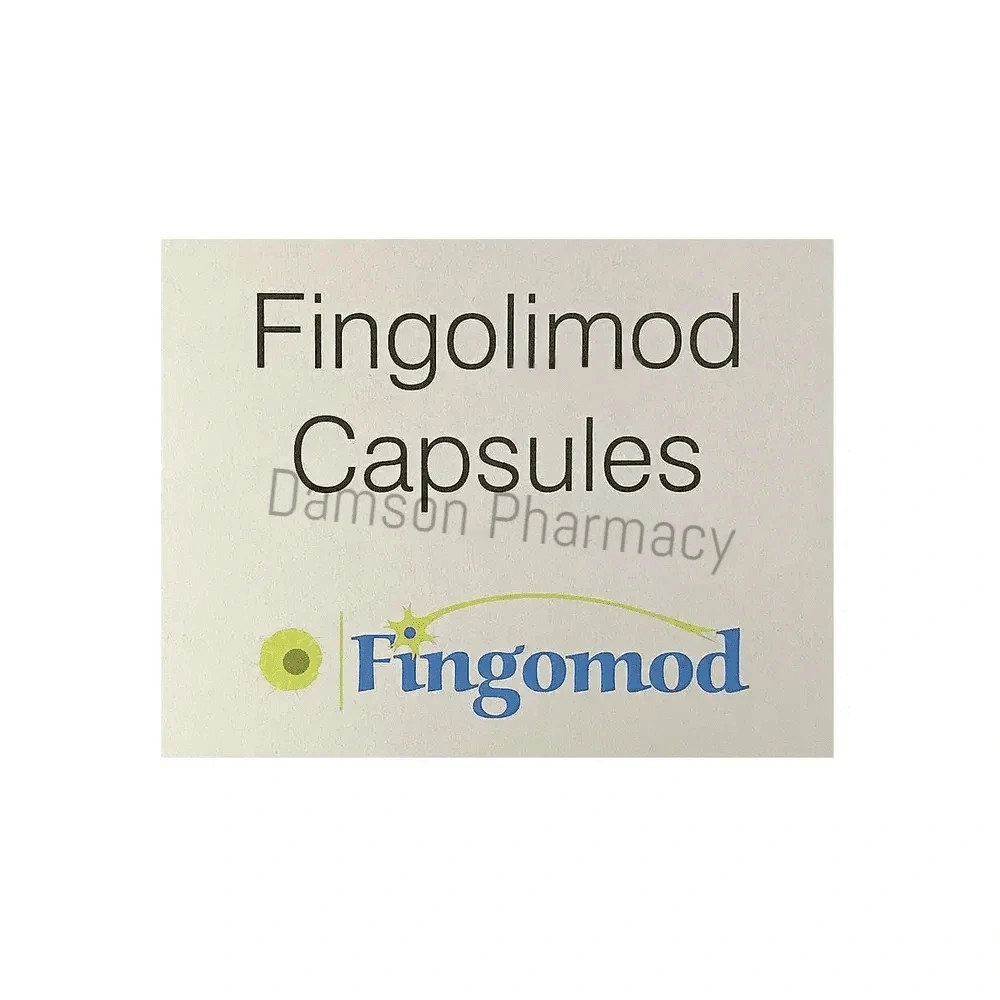
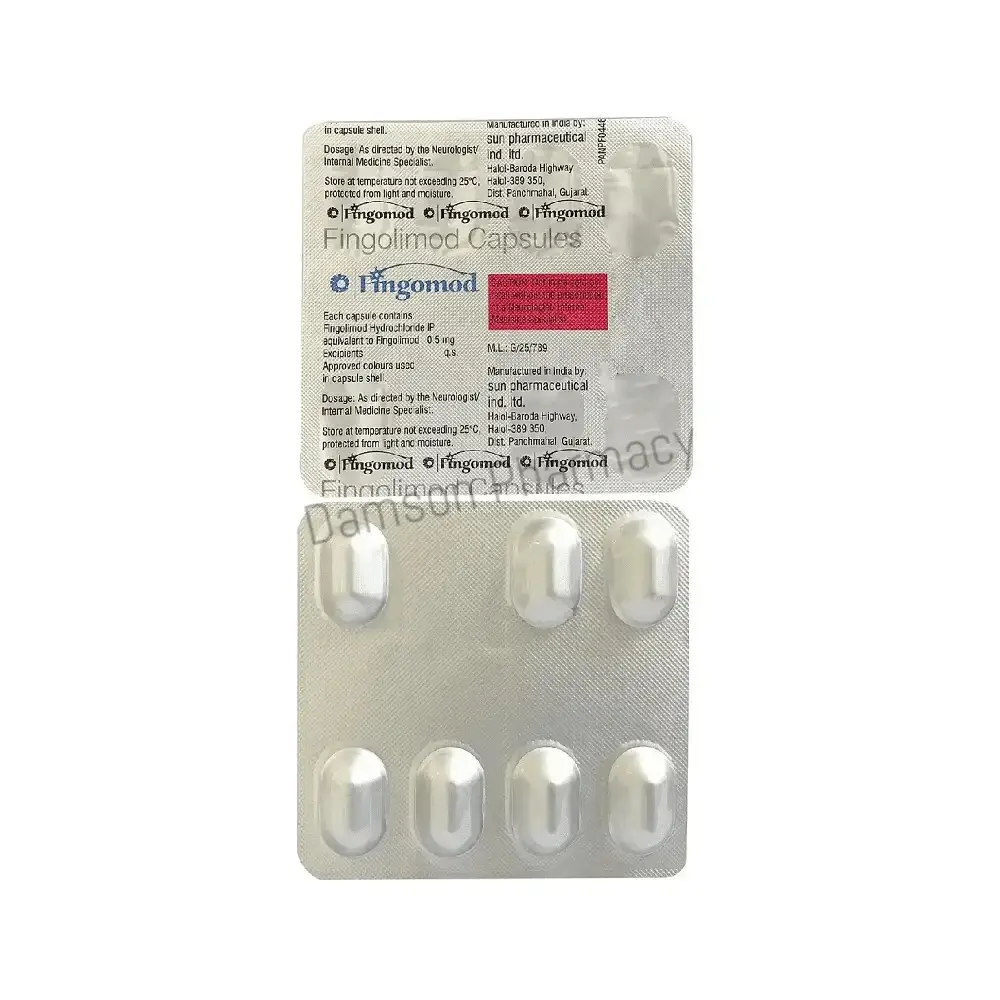
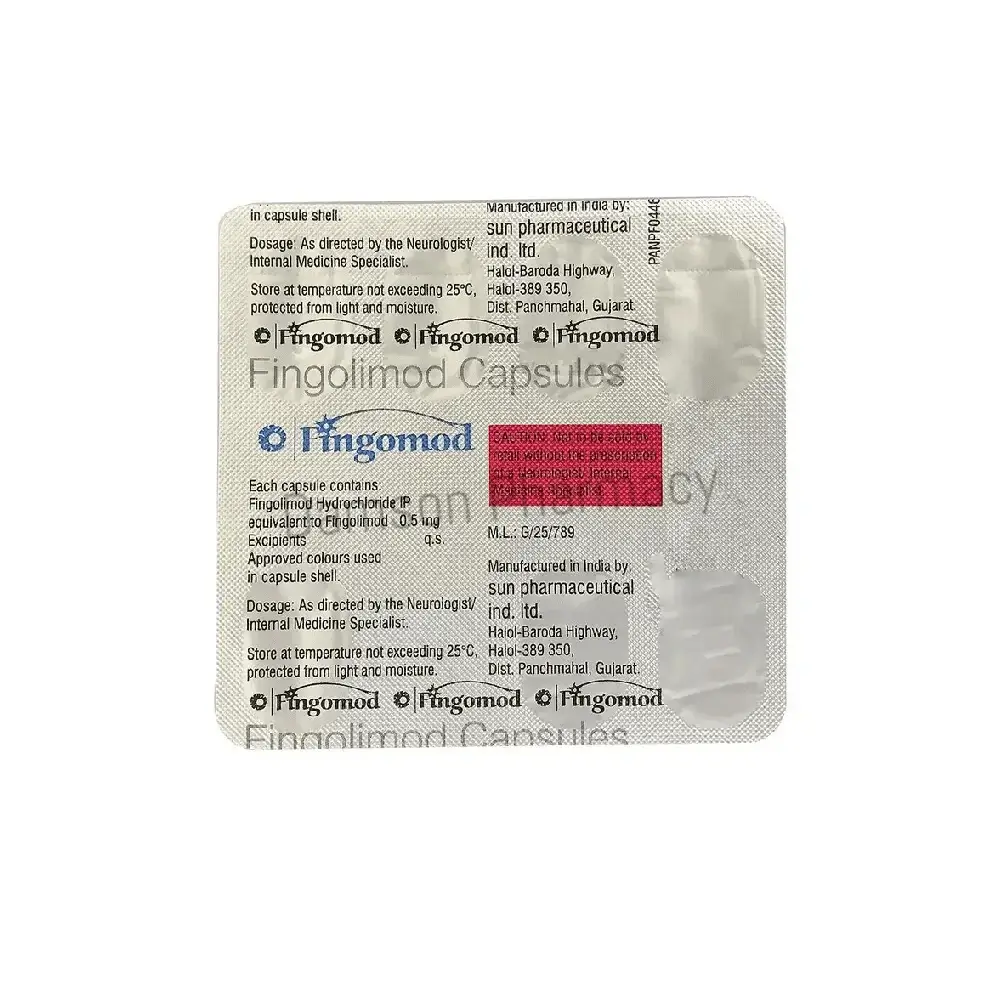
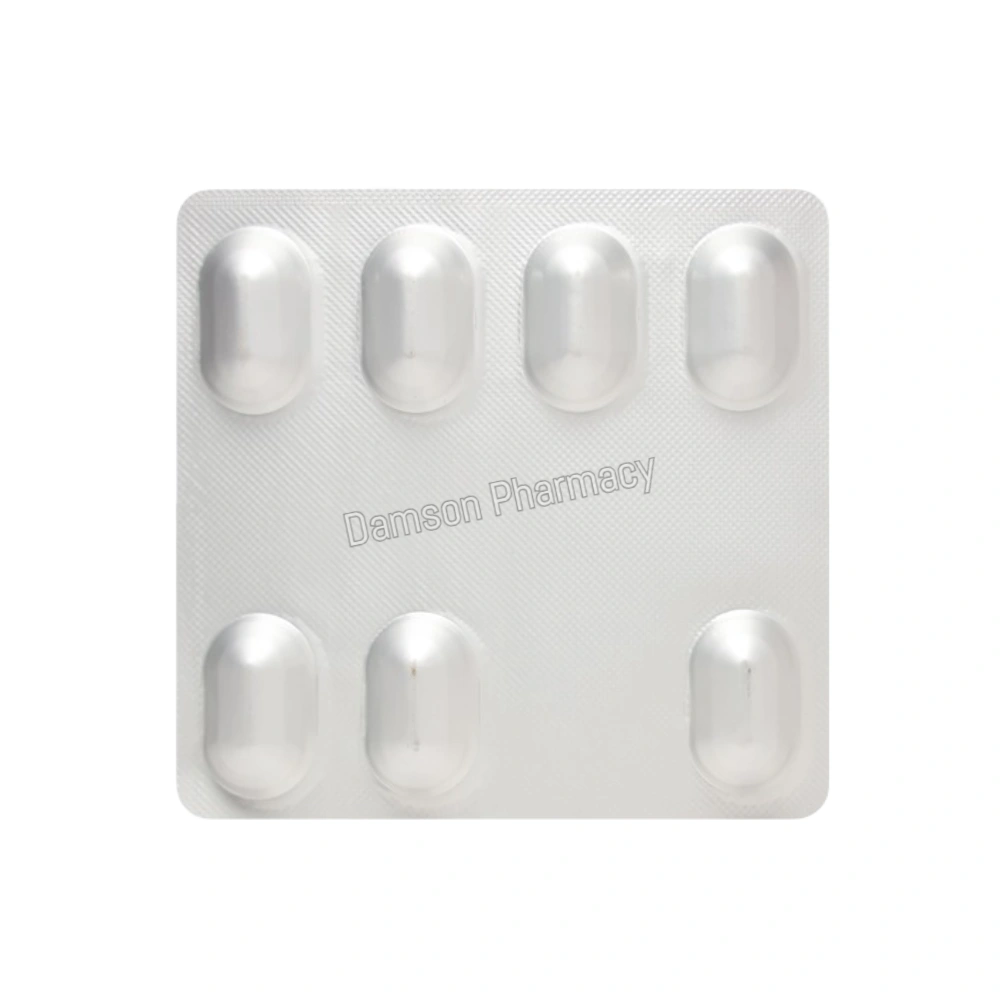


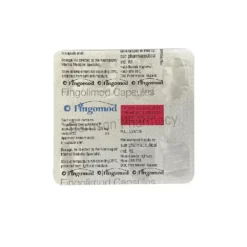
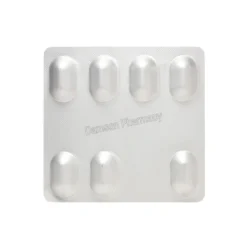

George Floyd –
Very good experience dealing with seller. Will do business with them again.
Tram –
Fantastic service! I reached out to the chat feature and he was able to assist me with my prescription. 10/10 rating!
joaane –
My drugs were delivered on time. No action was required on my part. Thanks
Victoria barber –
I have been using The damsonpharmacy for nearly a year and I have had the best support for my health needs.